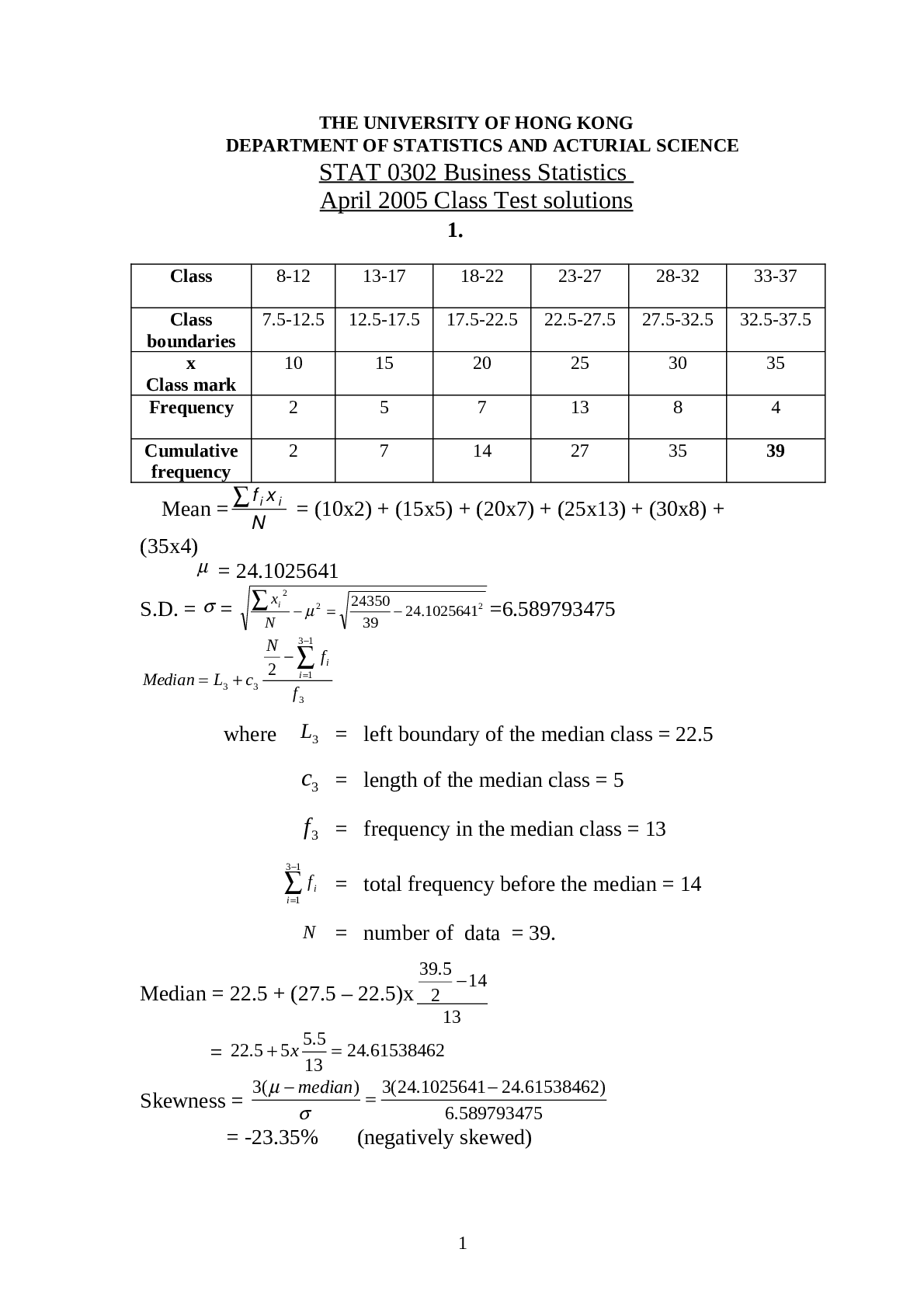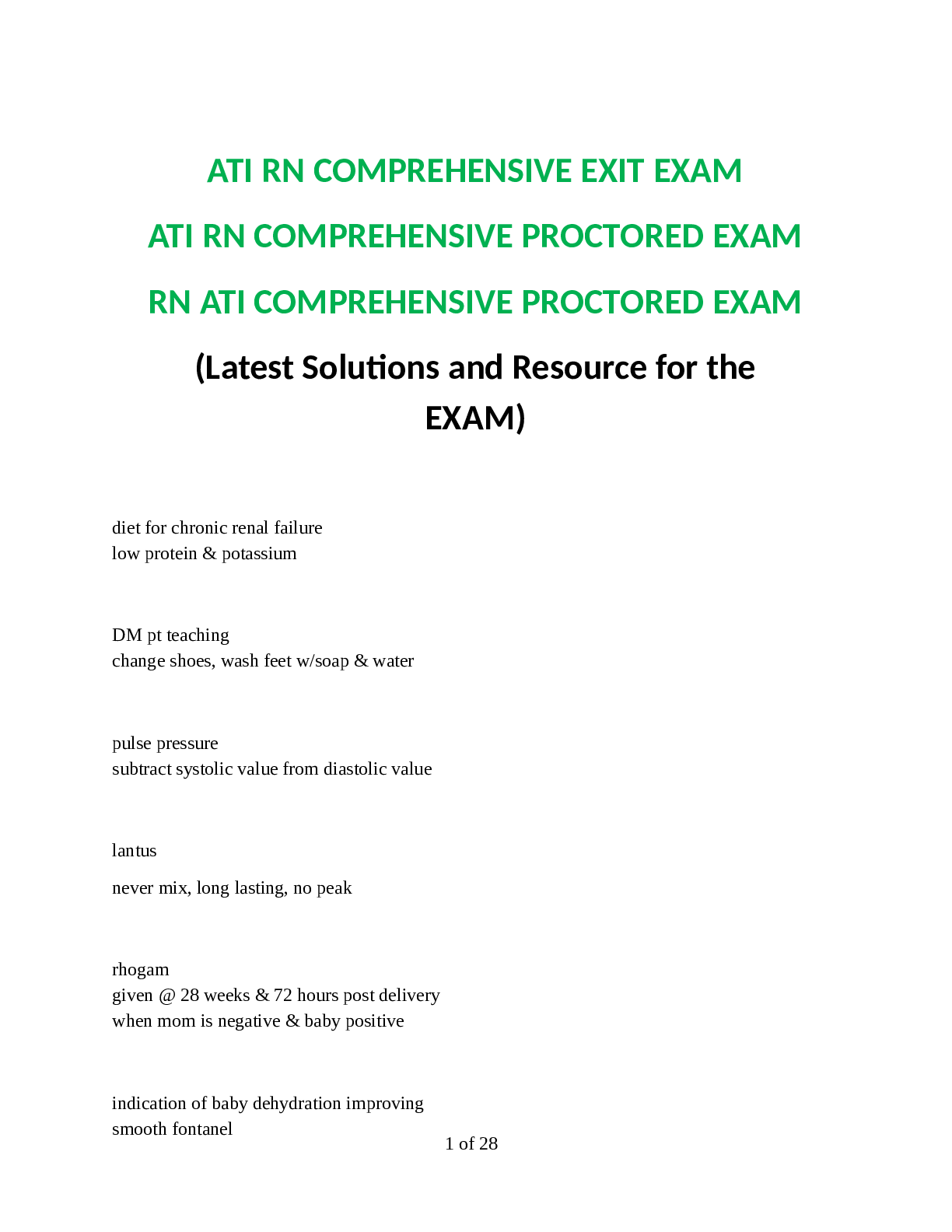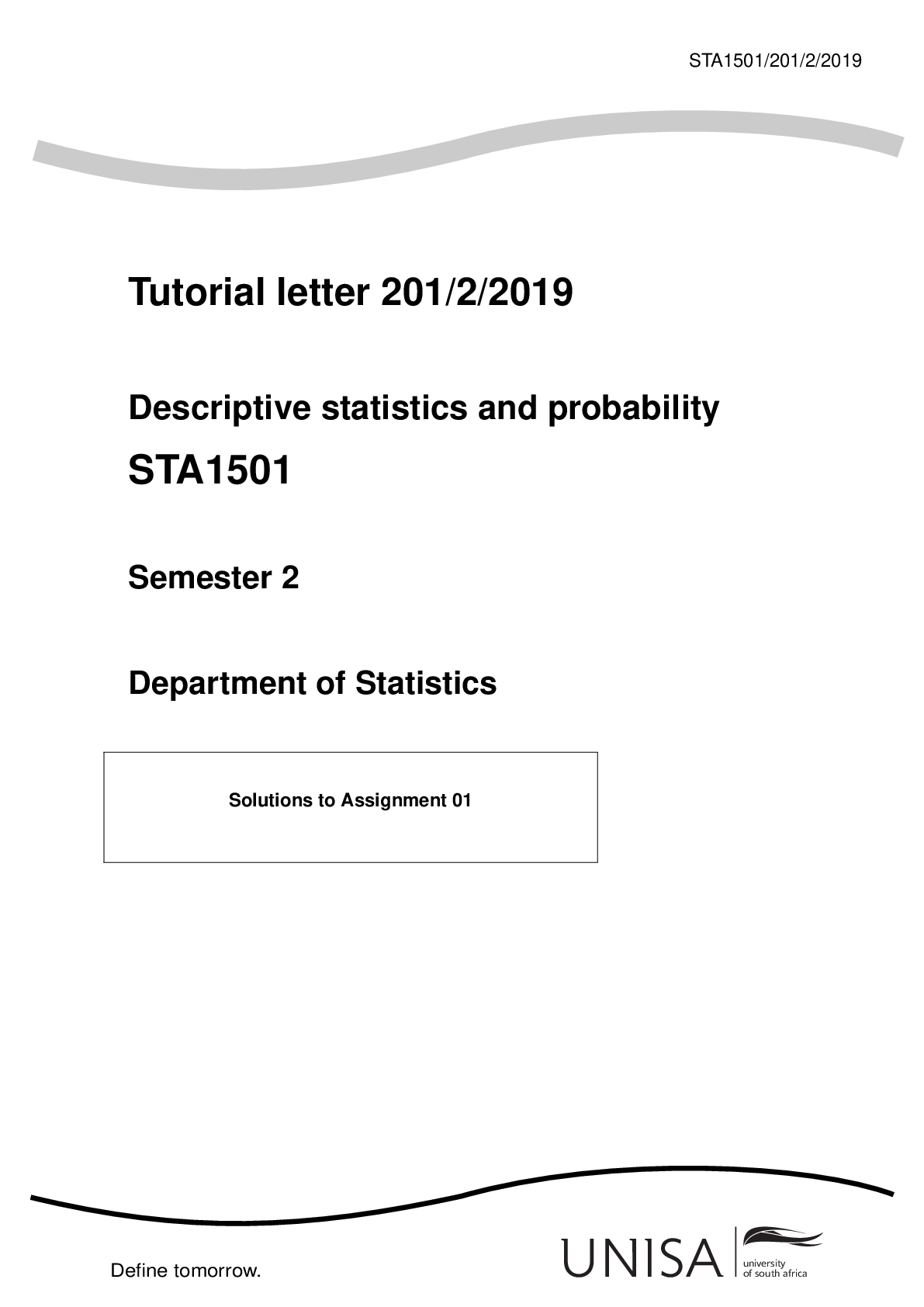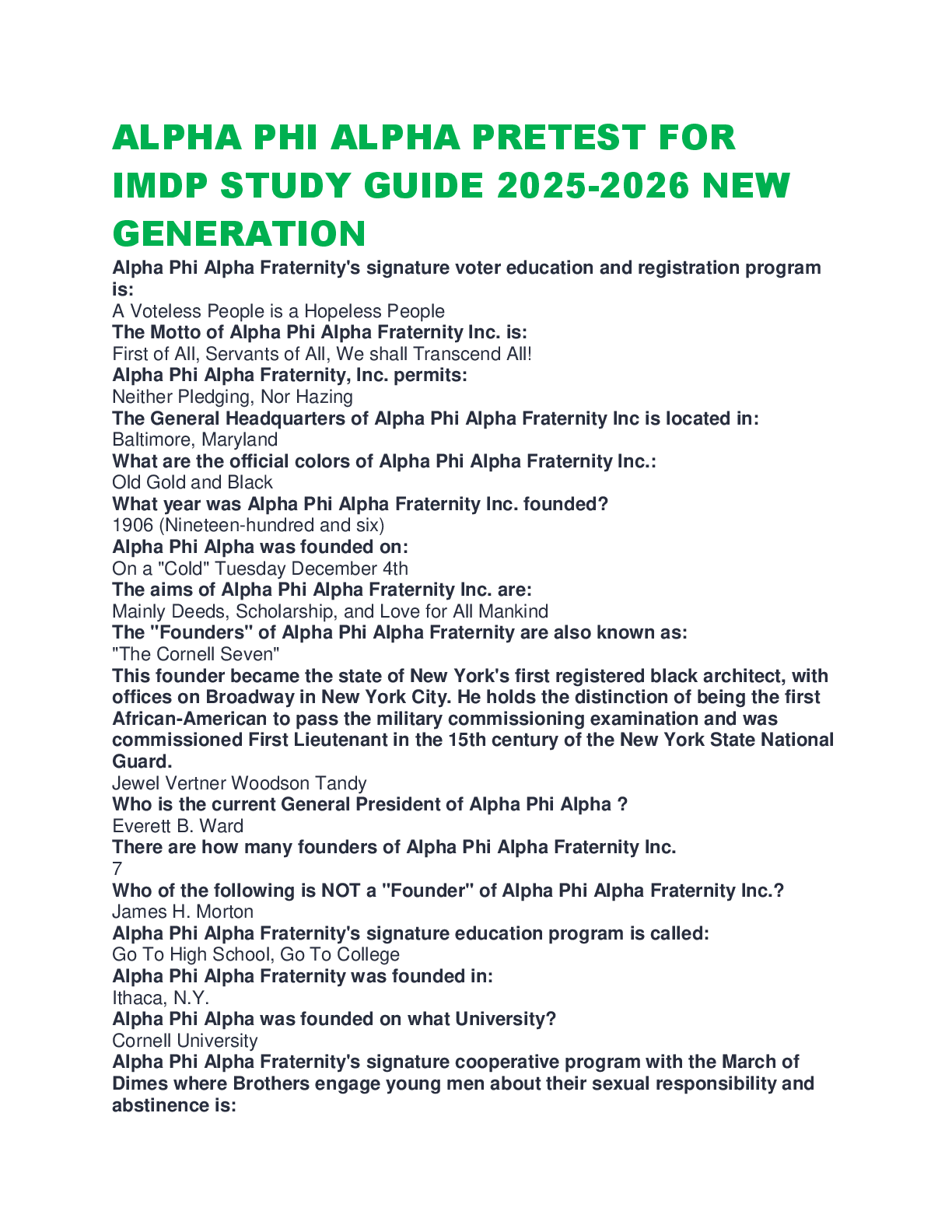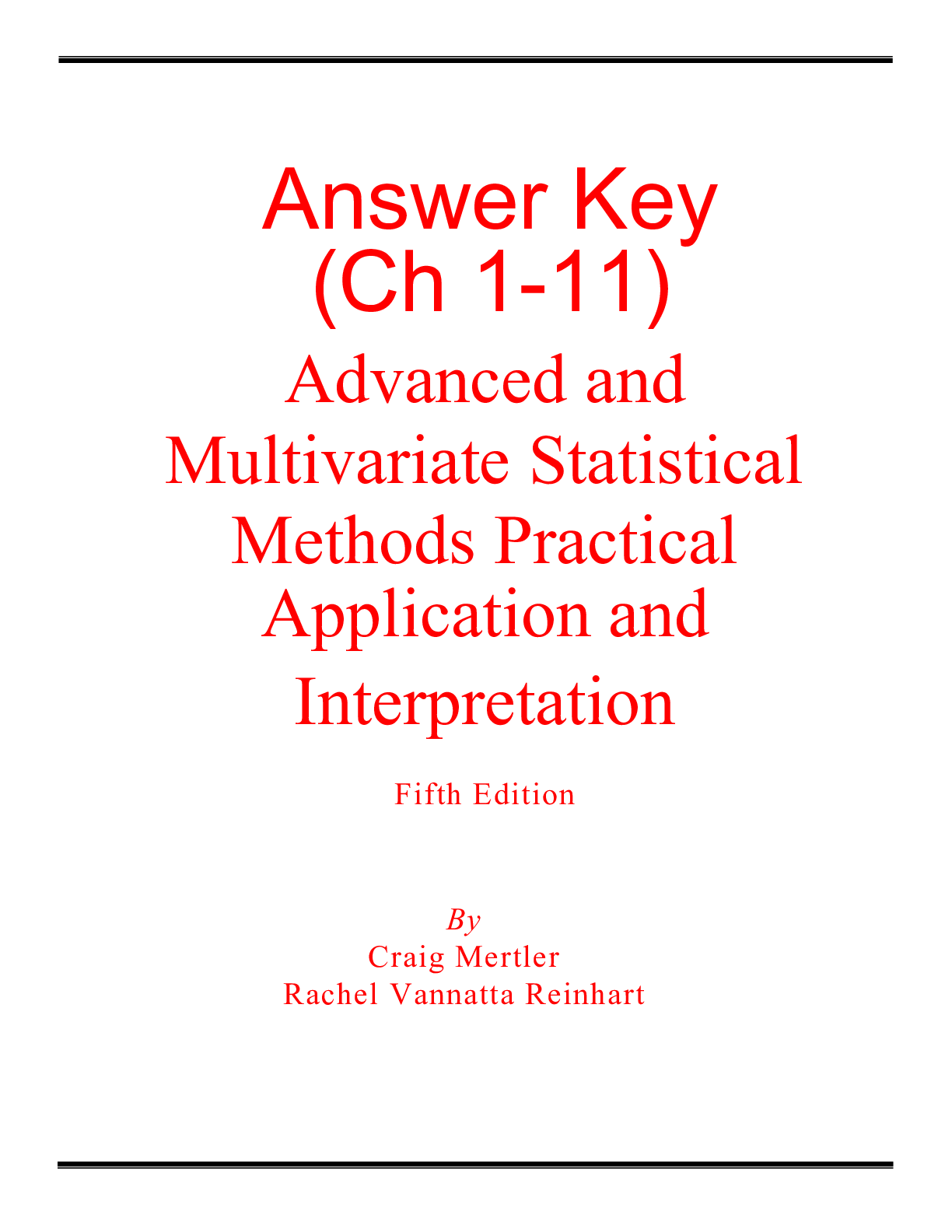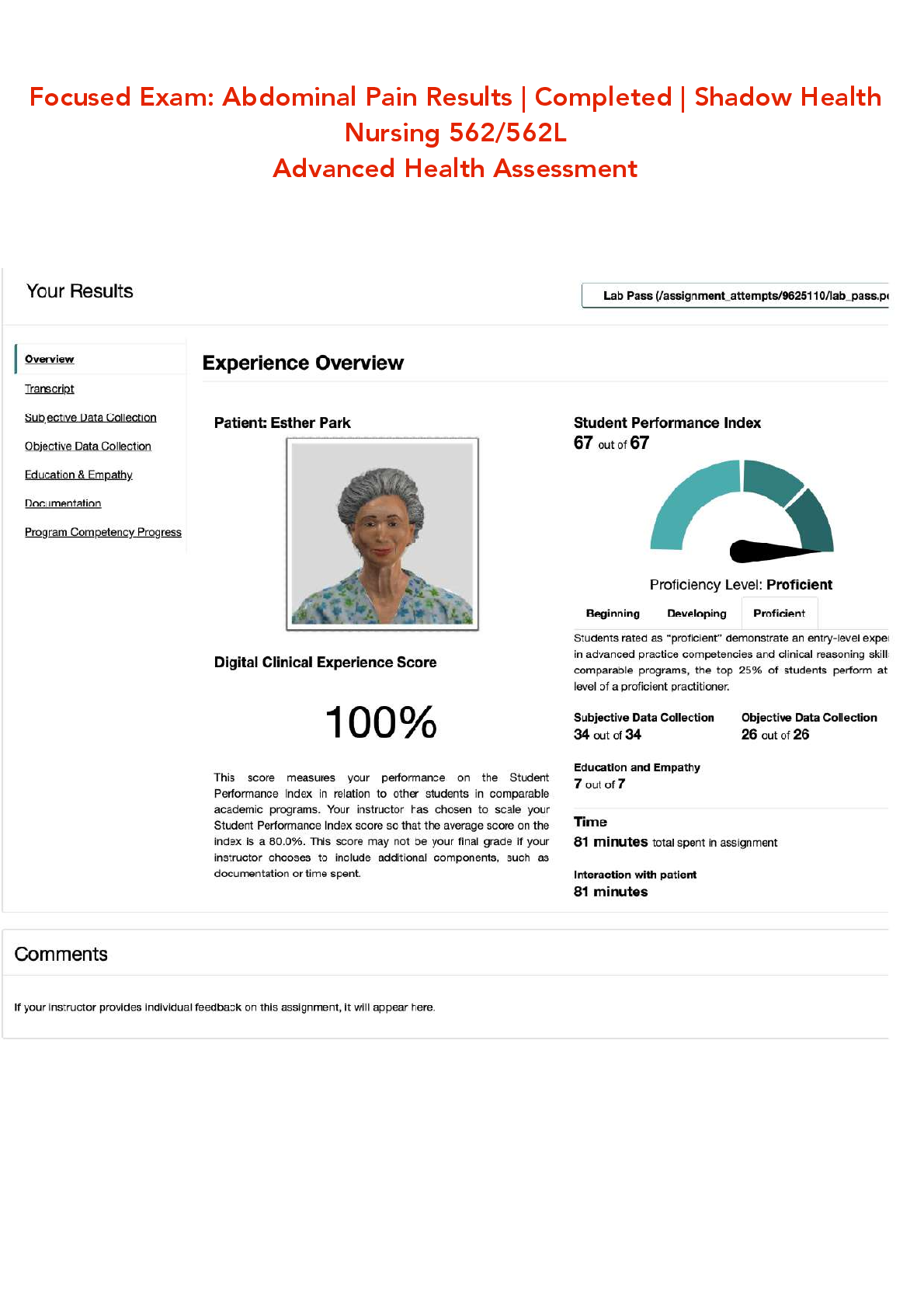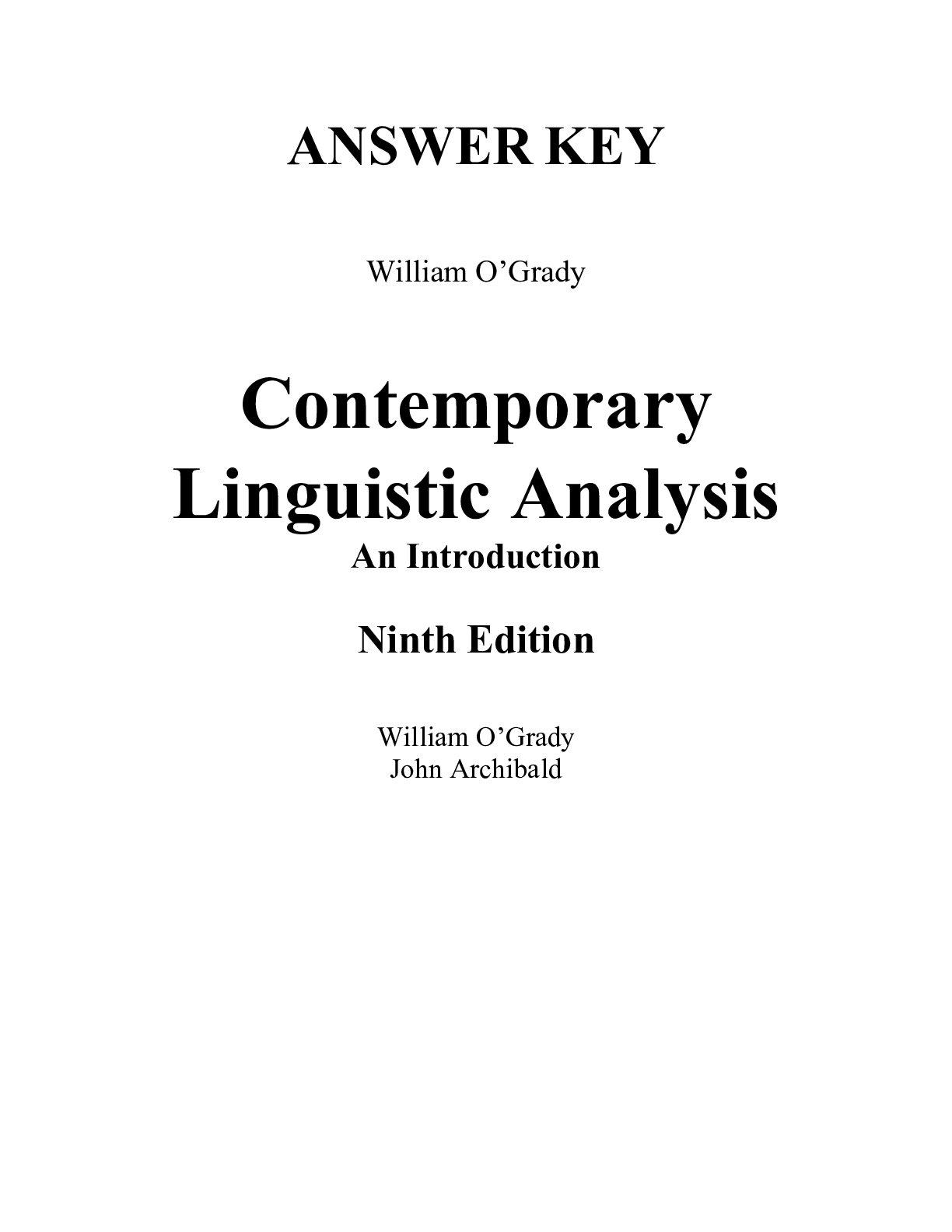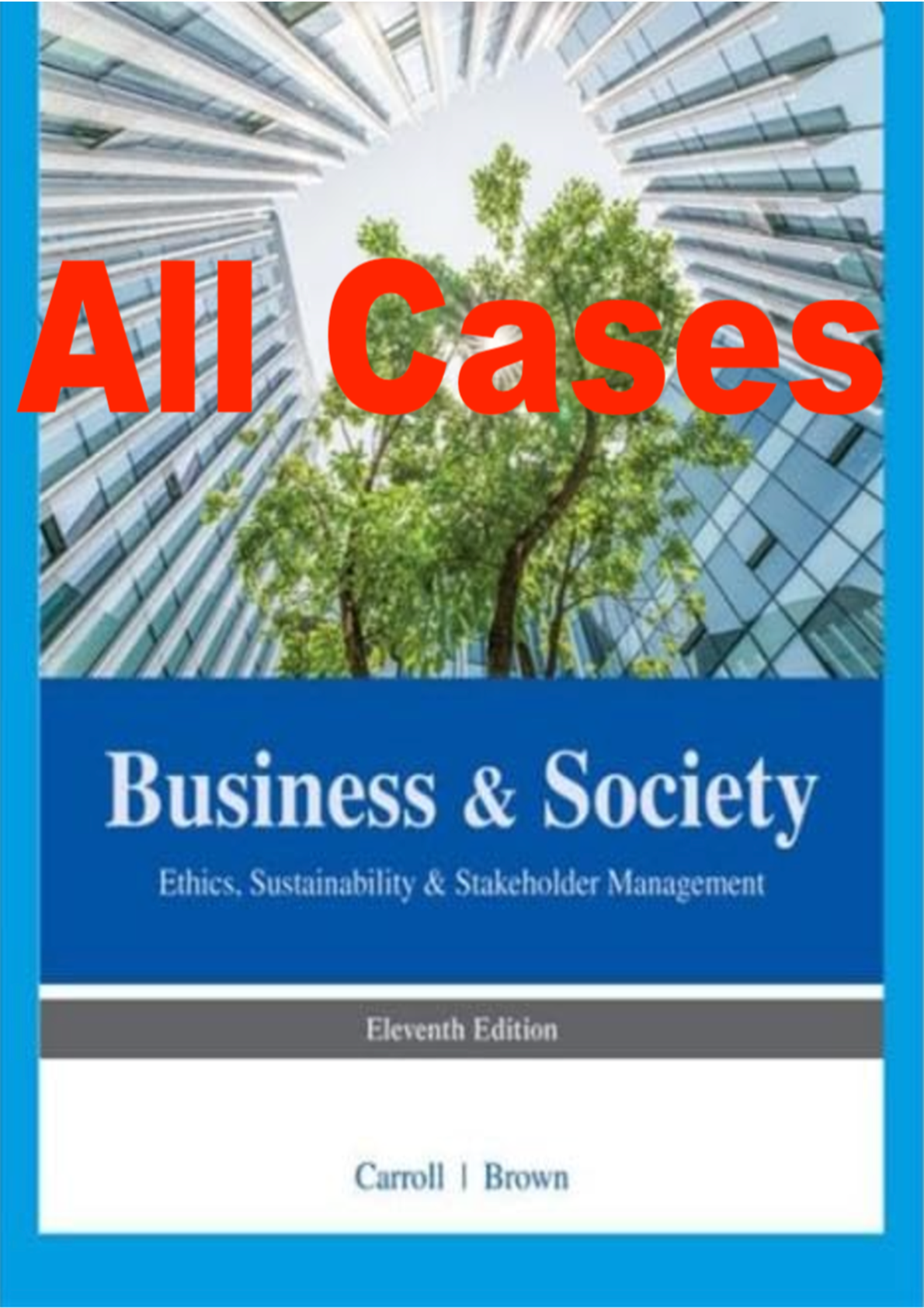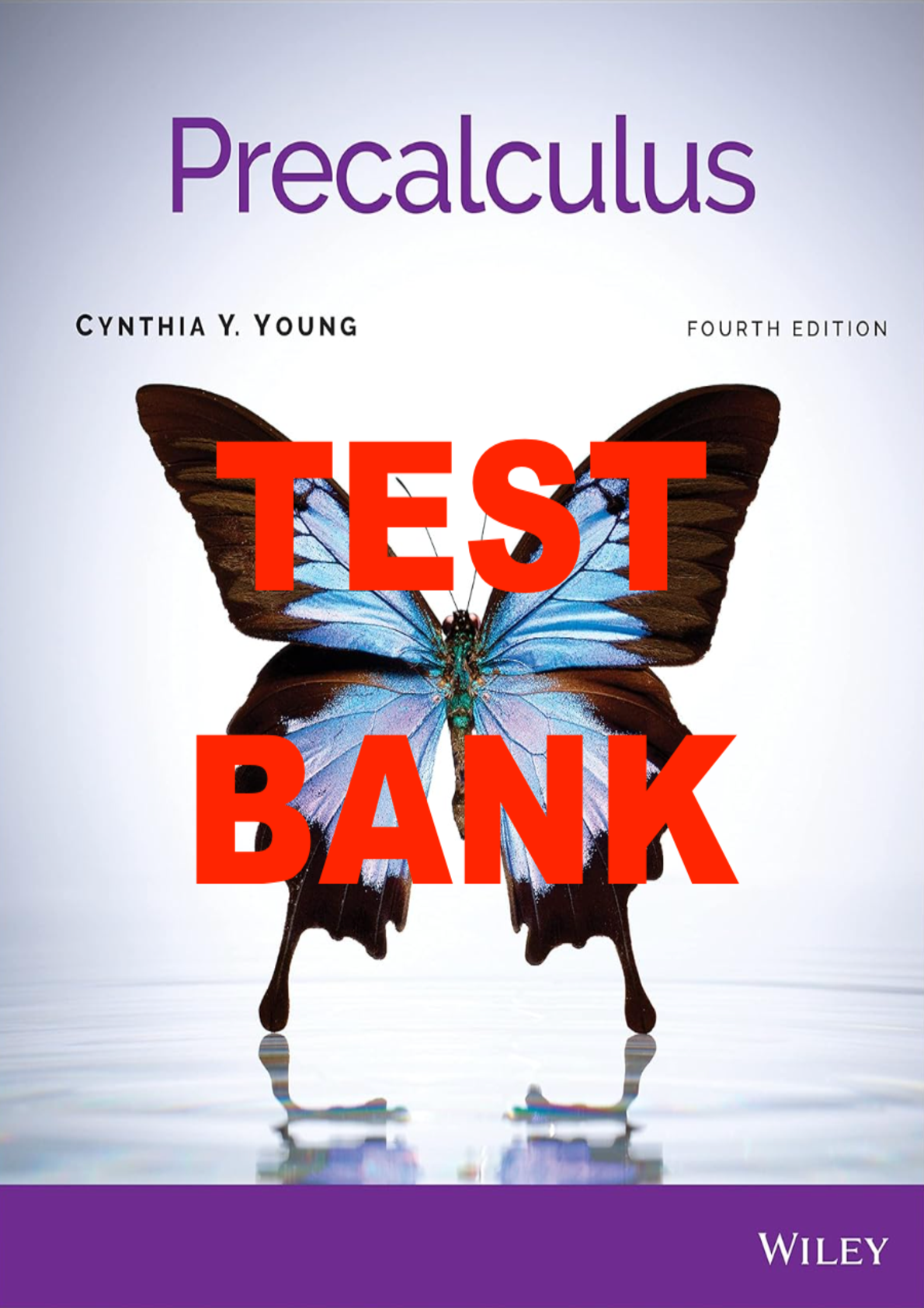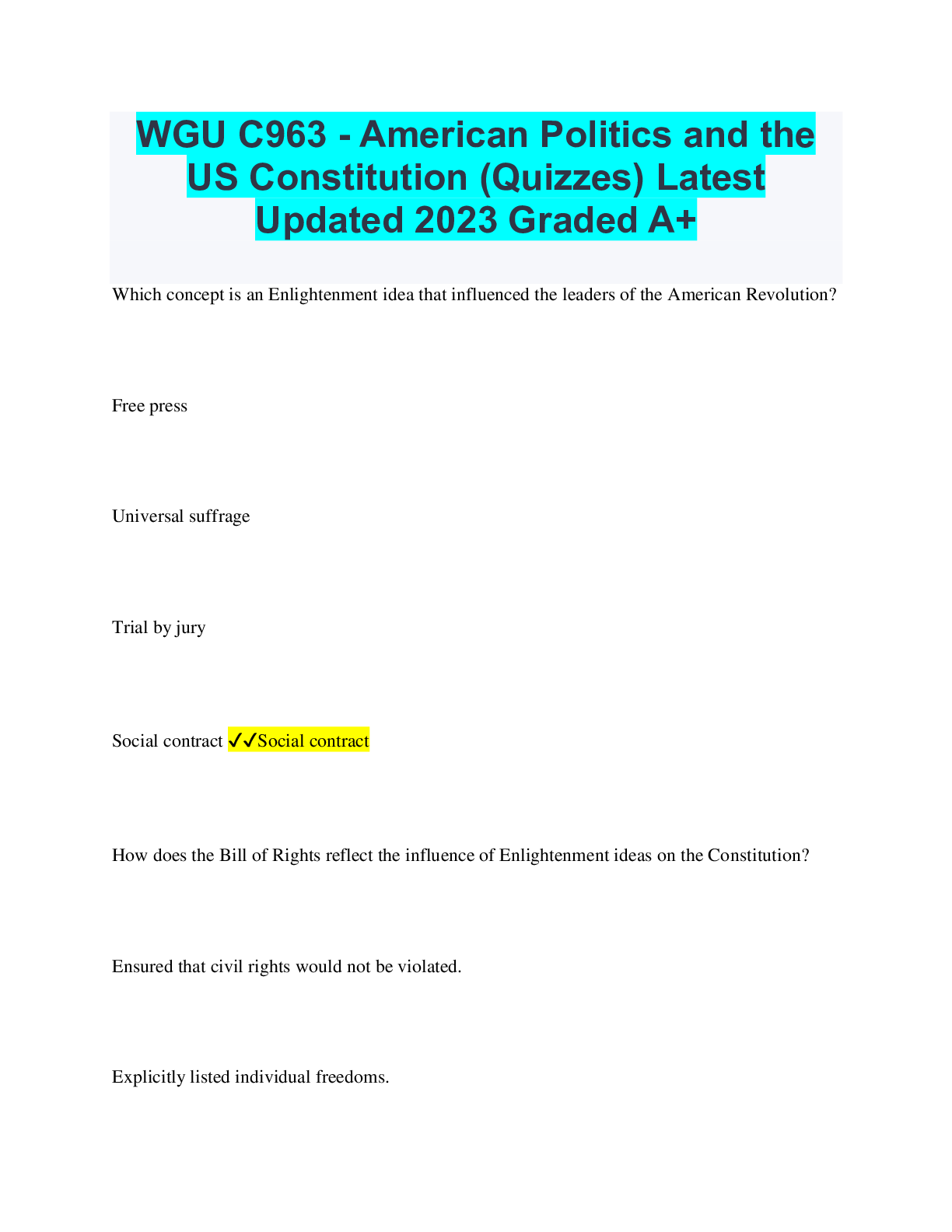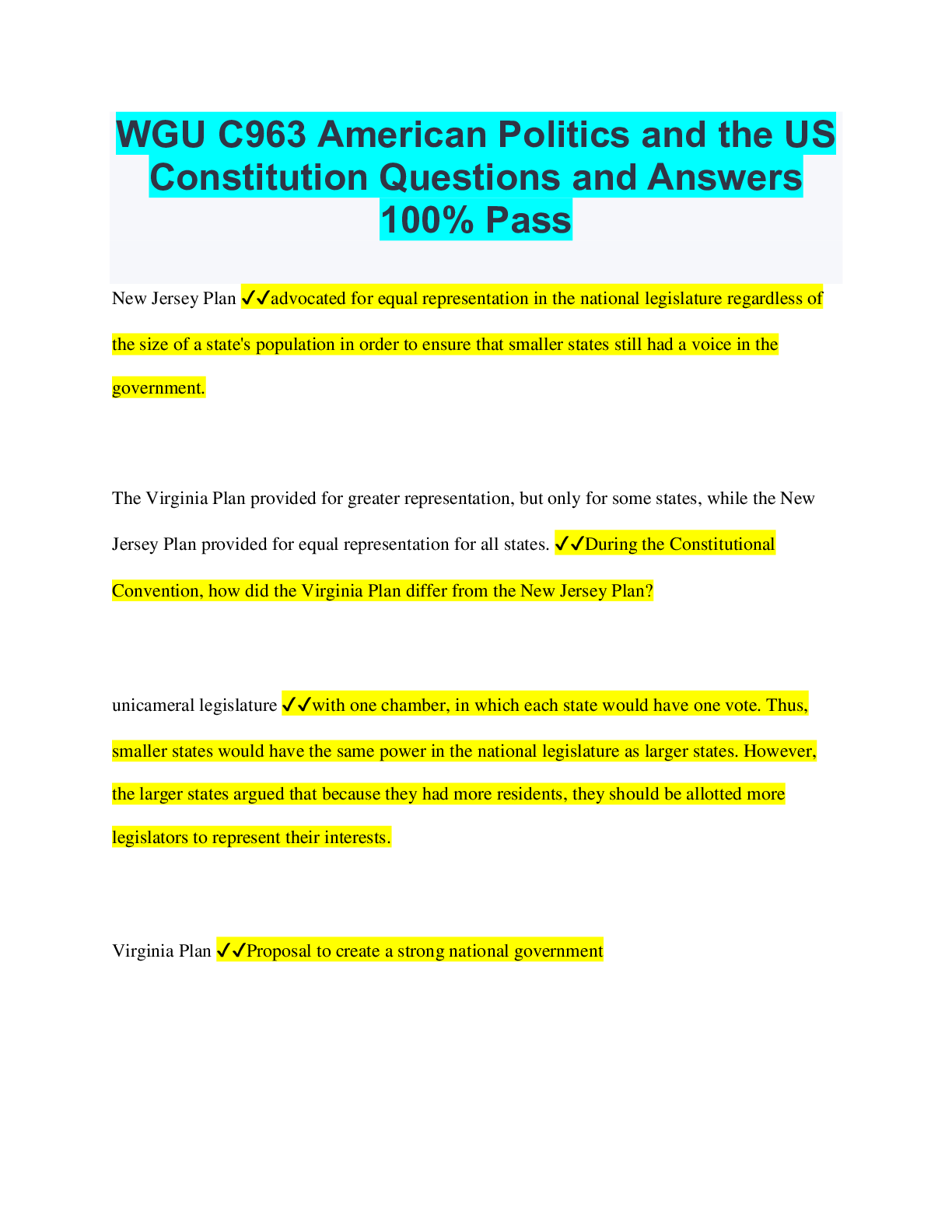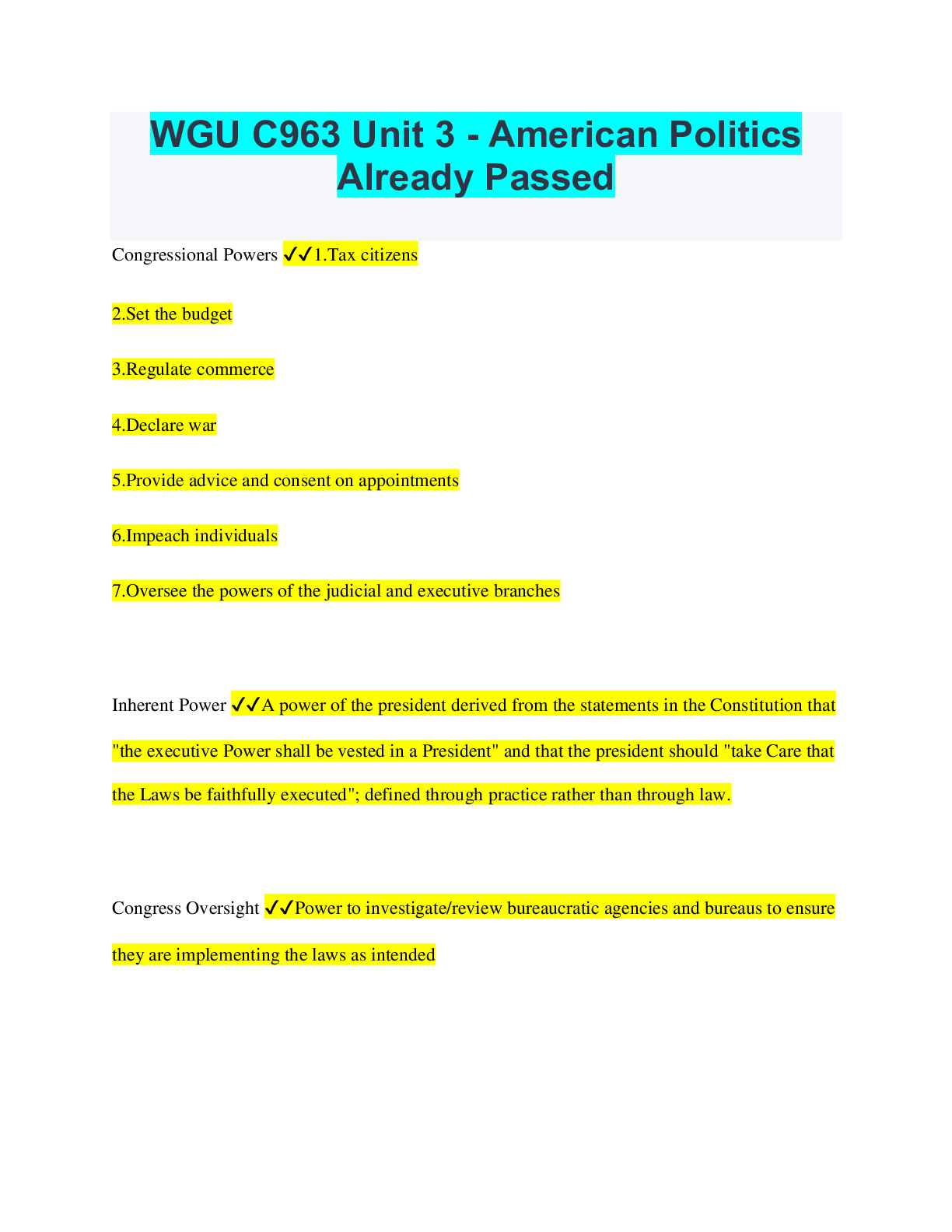AFRICAN CUSTOMARY LAW > ANSWERS AND COMMENTARIES > AFRICAN CUSTOMARY LAW (IND2601) TUTORIAL LETTER 201/2/2011 | Download for quality grades | (All)
AFRICAN CUSTOMARY LAW (IND2601) TUTORIAL LETTER 201/2/2011 | Download for quality grades |
Document Content and Description Below
1 COMMENTARY ON THE MULTIPLE-CHOICE ASSIGNMENT 01/2011 2 COMMENTARY ON THE WRITTEN ASSIGNMENT 02/2011 3 COMMENTARY ON THE SELF-EVALUATION ASSIGNMENT 03/2011 4 ADDITIONAL SELF-EVALUATION QUESTIONS ... 5 HOW TO APPROACH THE EXAMINATION 2 IND2601/201/2 THIS TUTORIAL LETTER CONTAINS IMPORTANT INFORMATION: PLEASE STUDY IT CAREFULLY. Dear Student This is the last tutorial letter for the semester. The main aim of the tutorial letter is to give you feedback on your assignments and a few guidelines on the forthcoming examination. We trust that you will find this tutorial letter useful for your studies and in your preparation for the examination. 1 COMMENTARY ON THE MULTIPLE-CHOICE ASSIGNMENT 01/2011 1. True: When property from one house is used for the benefit of another house, no action for repayment can be instituted in an indigenous court. (1) 2. True: A successor may on good grounds be removed from the line of succession. (1) 3. False: The court procedure for both civil matters in an African customary court are the same as the procedure in criminal matters. (1) 4. False: In original indigenous law, the disposition of property by means of a will was unknown as a means of disposing of the deceased property. (1) 5. True: Perjury is unknown in African customary court procedures. (1) 6. True: In customary law, alcohol and drug abuse do not affect a person's criminal liability. (1) 7. True: Hearsay evidence is admissible, and is considered together with other evidence. Hearsay can also serve as a guideline in questioning the parties and their witnesses and is therefore admissible. (1) 8. False: A traditional leader is only empowered to punish people within his jurisdiction. (1) 9. False: Emphasis in customary law is placed on the whole agnatic group and to the benefit of the agnatic group. . (1) 3 IND2601/201/2 10. False: Section 1 of the Law of Evidence Amendment Act 45 of 1988 provides that any court may apply the law of a foreign state and of indigenous law in so far as such law can be ascertained readily and with sufficient certainty. (1) 11. True: Observance of the law often indicates that a particular rule is a rule of law, even though its nature has never been determined by a court. (1) 12. True: In terms of the Constitution of the Republic of South Africa, 1996, all existing legislation will remain in force until amended or repealed (section 241, read with Schedule 6, section 2). This means, among other things, that the Black Administration Act 38 of 1927 and the Black Authorities Act 68 of 1951 are still in force. (1) 13. False: It is not the responsibility of the Labour Court and the Small Claims Court to resolve any conflict between customary law and fundamental rights (1) 14. False: The Recognition of Customary Marriages Act 120 of 1998 regulates customary marriages in South Africa. (1) 15. True: Customary marriages can now only be dissolved on the grounds of the irretrievable breakdown in terms of section 8(1) of The Recognition of Customary Marria [Show More]
Last updated: 2 years ago
Preview 1 out of 19 pages

Buy this document to get the full access instantly
Instant Download Access after purchase
Buy NowInstant download
We Accept:

Reviews( 0 )
$10.00
Can't find what you want? Try our AI powered Search
Document information
Connected school, study & course
About the document
Uploaded On
Mar 14, 2023
Number of pages
19
Written in
All
Additional information
This document has been written for:
Uploaded
Mar 14, 2023
Downloads
0
Views
156

.png)

